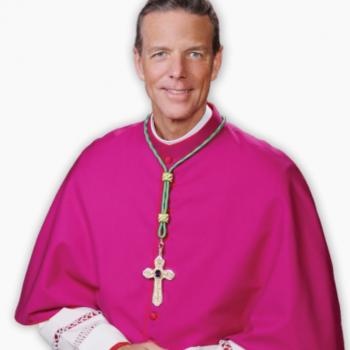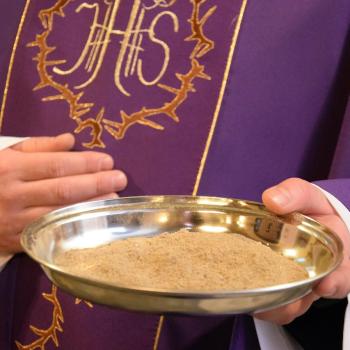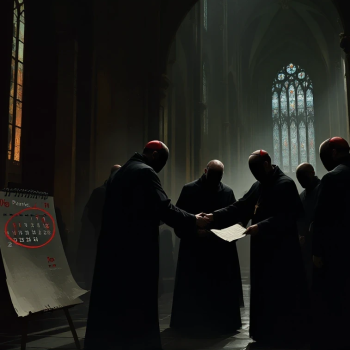This is the third reflection in our Advent Series, "The Hopes and Fears of All the Years," by biblical scholars and preachers John C. Holbert and Alyce McKenzie. For an overview of the series with links to all the reflections, click here.
Third Sunday in Advent
Isaiah 35:1-10
The book of Isaiah from chapters 24-35 is a sort of grab bag of oracles whose dating is well-nigh impossible. We really are dealing here with an Isaianic school, writers who drank at the wells of 8th-century B.C.E. Isaiah, but whose interests reflect later days, perhaps even as late as the exilic writing of II-Isaiah (40-55). Hence, their interpretation is never easy, given the clear lack of historical provenance.
But that very lack of clarity helps the interpreter to look more closely at the poetry that is actually present and evaluate the contexts of the chapters as they relate to one another. This I will try to do in what follows.
Chapter 34 is a very grim oracle against the "kingdom" of Edom, a divine assault against an Israelite neighbor (to the southeast). I place the word kingdom in quotation marks, since we know little about the government and history of Edom, and because its entire land area perhaps included little more than thirty square miles. This text bristles with nasty images of the results of YHWH's attacks against this small group of people whose relationship to Israel was always a checkered one. God's fury against "all nations" is unbridled (34:2), and after the divine sword has been allowed to "drink its fill in the heavens" (whatever that may mean!), it will "descend upon Edom," a people God has "doomed to judgment" (34:5).
Horrible images follow of blood and fat and sacrifice, where rivers turn into boiling pitch, soil becomes sulfur, and the stench never ceases. All civilization will disappear from Edom; it will become merely the "haunt of jackals and ostriches," sure signs that the blasted wilderness has returned. And at the last, the "owls will nest" and the "buzzards shall gather," and the place will then be called "No Kingdom There" (34:12-15). Edom will become a veritable hell on earth.
Such a vindictive poem is then followed by a delightful reversal of the whole thing! Now, "the wilderness and the dry land shall be glad, the desert shall rejoice and blossom like the crocus" (35:1). This immediate reversal gives the reader theological and metaphorical whiplash. Why are these two chapters sitting right next to one another in the book? First, God is "enraged against all the nations" (34:2) and second God is making the desert bloom. I would suggest that here one sees the grand mystery of the work of God in the world. The fury of God is quite often followed by the gifts of God in the tradition, a reality that the Israelites noted but rarely attempted to explain. They knew all too well that their history exemplified this whip-saw action of their God, responding in anger to their rejections of God's choice of them but receiving God's remarkable grace, often when they least expected it.
Think of the great story of the flood. The vast evil of the human race first moved God to such anger that God determined to obliterate them from the earth, saving only one family in a tiny boat (Gen. 6:5 for the human reason for the flood). But then after the waters recede and the dry land reappears, God resolves never again to bring a flood on the earth, even though the central reason for its coming, namely the evil of the human beings, is still quite evident in them (Gen. 8:21)! More specifically, God decides not to destroy them for exactly the same reason that God decided to destroy them in the first place (compare 6:5 with 8:21)! Such is the mystery of this God!
Hence, God in Isaiah 35 now promises a new and fresh wilderness, filled with lovely blossoms, rather than jackals and ostriches, ringing with the sounds of joy and singing rather than the hoots and screeches of owls and buzzards. Instead of a blasted and parched wilderness, God vows to deck it with the "glory of Lebanon" (famous for its mighty trees and their forests) and the "majesty of Carmel and Sharon," the most fertile spots in the entire land of Israel (35:2). In these acts of fertility all "will see the glory of the Lord, the majesty of our God" (35:2d; see also Is. 40:5).
To those who are fearful, whose hands are weak, whose knees are infirm, all are to proclaim, "Be strong, do not fear!" Because "here is your God! God comes with vengeance, with terrible recompense. God will come and save you" (35:4). The word "vengeance" can be a troubling one when connected with the actions of God, but its meaning here is surely "protector" or "advocate." God has now come to save you, not as in chapter 34 to destroy and lay waste the land.





